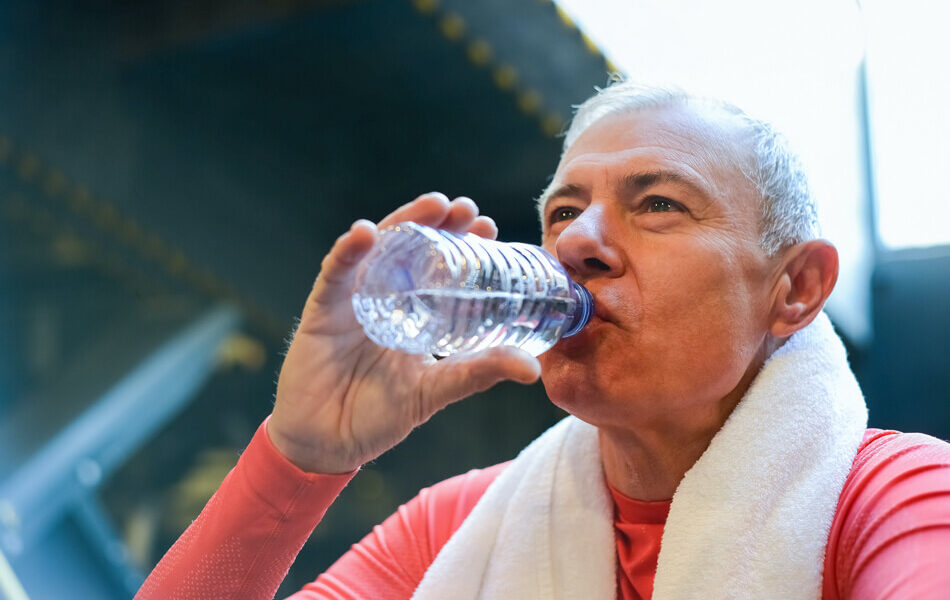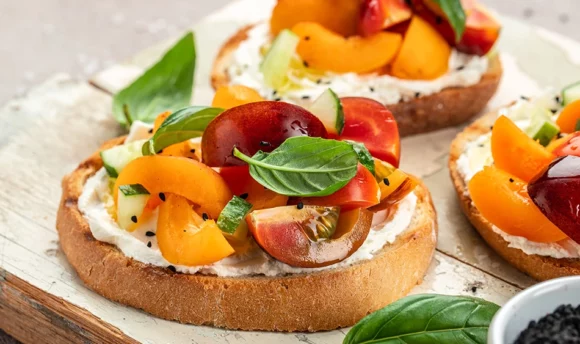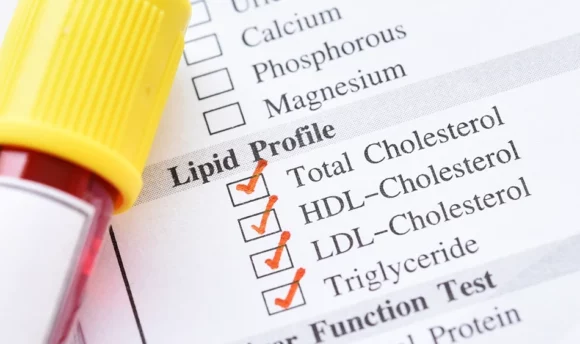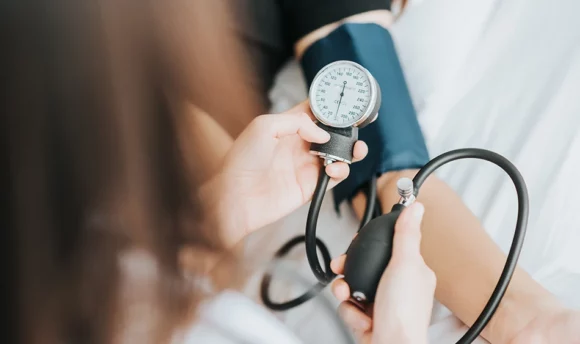Does Drinking Water Lower Blood Pressure?
Managing high blood pressure can be challenging, especially if you have no support. Drinking plenty of water might be one way to calm hypertension. So, how does this work exactly? We explain the types of hypertension and if drinking water lowers that.

Consuming lots of water has many health benefits for your heart.
You might not realize that dehydration can accelerate high blood pressure. If you’re not drinking enough fluids, your body may start to show physical symptoms. This might include severe headaches, fatigue, chest pain, and vision problems related to hypertension.
It’s common to think, “How does water actually reduce blood pressure?” “Will it stop those horrible side effects of constricted blood vessels?” These are questions we can address.
In this article, you’ll discover whether drinking water lowers blood pressure.
Does Drinking Water Lower Blood Pressure?
Consuming lots of water can definitely maintain healthy blood pressure. Water makes up 73% of your heart, so it makes sense to drink enough. Staying fully hydrated throughout the day ensures your heart pumps blood effectively.
You should drink water to protect the cardiovascular system and keep organs functioning properly. Low blood pressure means your heart doesn’t need extra force to distribute blood. Plain water is the best way to notice changes in your physical symptoms.
Adding calcium and magnesium supplements to water might also lower your blood pressure. These essential minerals help blood vessels to relax, encouraging more energy production. Feeding your cardiovascular health with natural fluids and dietary minerals is important.
What Is Considered a High Blood Pressure?
High blood pressure is considered to be higher than 120–129 systolic and 80 mm Hg diastolic. Both systolic and diastolic represent the numbers on a blood pressure machine. Going over these optimal amounts may cause long-term health problems.
There are a few ways of determining high blood pressure by yourself. You can check the systolic pressure, which is the first number on the machine. If the number is higher than 130, this means you have lots of blood force in your arteries when the heart beats.
The same goes for diastolic pressure and if the amount is greater than 80. Diastolic refers to the force in your arteries when the heart rests. Having two high numbers can be very dangerous, so always seek medical help if you aren’t already on blood pressure medication.
Doctors will usually check your blood pressure during regular check-up appointments to see if it’s high or low. People should ideally have a sphygmomanometer in their home to monitor their health, especially if there’s a family history of having long-term heart problems.
Types of Hypertension
Hypertension refers to the high-pressure levels in your arteries. This is a very common health condition that may trigger headaches, shortness of breath, fatigue, and even nosebleeds. People who don’t get enough physical activity are at a higher risk of this.
Let’s take a look at the two types of hypertension:
#1 Essential hypertension
Essential (primary) hypertension is when you have high blood pressure that’s not caused by a medical condition. The main reasons might be obesity, age, sedentary lifestyle, and diet. People who have this hypertension can change their lifestyle habits to lower high-pressure levels.
#2 Secondary hypertension
Secondary hypertension is always caused by a health condition associated with your heart, arteries, kidneys, or endocrine system. Some medical problems could be obstructive sleep apnea or thyroid disease (hyperthyroidism) that increases your heart rate too much.
Can Dehydration Cause High Blood Pressure?
Yes, dehydration can lead to high blood pressure. Your kidneys retain more water instead of disposing of it through urine, which encourages high vasopressin levels. This hormone may constrict your blood vessels and make it harder for blood to flow.
Vasopressin is an antidiuretic hormone (ADH) that maintains the volume of water in extracellular fluids. Too much ADH can deprive your body of water, leading to dehydration and high blood pressure. Drinking lots of water is one way to decrease the risk of these hormone levels.
People with inappropriate antidiuretic hormone secretion usually have too much vasopressin in their system. This may be caused by surgery, blood pressure drugs, brain disorders, or chronic infections. Doctors usually prescribe the right medication to prevent severe dehydration.
If you need more support with staying healthy, try one of the best blood pressure apps. With such apps, you can track your condition. Most of them have gentle reminders to take your medications and blood pressure measurements. This will encourage you to monitor your health regularly, especially if you get dehydrated often.
What Fluids to Drink to Lower High Blood Pressure
There are many drinks to choose from when lowering blood pressure.
Water is the first obvious choice that will benefit you the most. This refreshing beverage may prevent heart and kidney disease and reduce stress on your heart. You should always drink water throughout the day to reach a healthy weight and gain more energy.
Sparkling water is another option if you don’t enjoy plain drinks. It can still keep you fully hydrated and stop vasopressin from overloading your body. Even adding lemon, lime, or mint to water can spice up the flavor and encourage you to drink more during the day.
When you don’t feel like drinking water, smoothies might be a tasteful choice. You can mix citrus fruits like grapefruit, oranges, and lemons to lower your blood pressure. Smoothies may also contribute to weight loss, especially if you use products that are low in calories.
Consider having tea without caffeine to reduce blood pressure. Herbal teas like ginger, peppermint, and hibiscus might relieve stress on your arteries. These also have anti-inflammatory properties that can stop irritation from forming on heart tissue.
Daily Water Intake for High Blood Pressure
The daily recommended water intake to treat high blood pressure is 8–10 cups. You should drink this amount even if you don’t have hypertension. Getting enough water ensures the body is fully hydrated and can function properly when distributing blood throughout your system.
People who suffer from autonomic nervous system failure should still drink water to prevent fainting, constipation, bladder problems, and fatigue. If you get a sudden drop in your blood pressure, drink plenty of fluids that can give you that extra spark of energy.
FAQs
No, it’s unlikely that too much water consumption can increase blood pressure. Just stick to the recommendation of 8–10 cups a day, and you may notice positive physical changes. However, be aware that drinking over 101 fl oz could disrupt your body’s natural electrolyte balance.
Yes, drinking water can reduce high blood pressure in under 60 minutes. You may not experience headaches, fatigue, chest pain, or elevated heart rate if you consume enough throughout the day. Always have water nearby so you can reach your daily intake.
Dehydration and caffeine don’t mix well, which can make you feel even more exhausted. You should avoid drinking coffee if you have increased blood pressure. Caffeine may block the hormone that keeps your arteries relaxed, encouraging more force in the blood vessels.
A Word From Our MD
Drinking plenty of water can help reduce high blood pressure by relaxing arteries. Hydration is key to decreasing blood volume and giving you maximum health benefits. Monitor your daily water intake to ensure you have at least 8–10 cups on a healthy diet.
Enough water consumption also prevents heart disease, severe dehydration, migraines, kidney damage, and bladder cancer. This is great for improving your cardiovascular system in a short amount of time. Water is an effective treatment when it comes to managing heart health.
Adding minerals like magnesium and calcium may also reduce pressure levels. These minerals help increase the production of nitric oxide – a molecule that relaxes vessels and reduces the risk of heart disease.
Always talk to a doctor if your blood pressure keeps rising. Medical professionals can advise you on the right treatments. Even though medication will help, making small lifestyle changes can make a huge difference. This could be limiting salt intake or avoiding sugary drinks.
Conclusion
So, can drinking water lower high blood pressure?
Achieving your daily water intake can relieve blood flow and prevent arteries from becoming too pressurized. Stay hydrated, and you’ll soon notice the symptoms have settled down. 8–10 cups of water a day is plenty to fuel your organs, maintain heart health, and manage stress.

















































 Select your language:
Select your language: 








